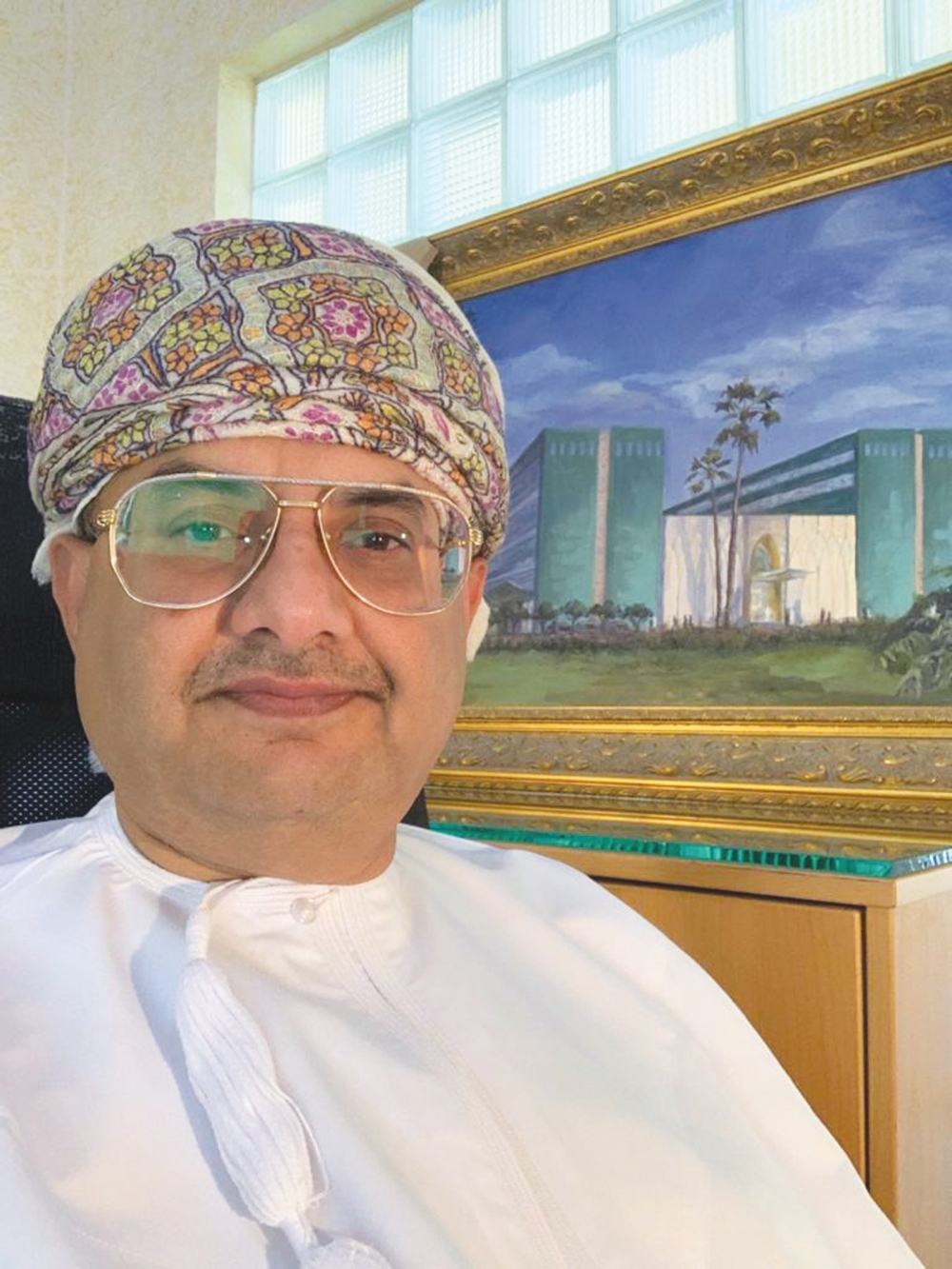

The Oman Chamber of Commerce and Industry (OCCI) has proposed the establishment of an autonomous, high-level agency to assist the Capital Market Authority (CMA) and Ministry of Health in the effective regulation of the health insurance and healthcare sectors when health coverage becomes mandatory for private-sector employees and visitors to the Sultanate.
The proposal is part of a list of recommendations made by the Chamber to the sector regulator, the CMA, aimed at underpinning the growth and sustainability of a robust economic industry around insurance services, notably by ensuring liquidity and effective cash flow.
Also notable is a recommendation for the creation of a National Central Reinsurance Company (NCRC) as a Public-Private Partnership (PPP) initiative to support, among other objectives, premium retention, cash flow management and foreign currency inflows into the country. Separately, the Chamber has called for the introduction of a classification system covering all private hospitals in the Sultanate — a scheme that would allow for healthcare tariffs and prices to be structured based on their grades.
The recommendations come on the heels of last week’s Royal Decree amending the Insurance Companies Law and Takaful Insurance Law as a prelude to the implementation of Mandatory Health Insurance (Dhamani) in the Sultanate. When it eventually comes into force, licenced insurers are required to run their healthcare insurance business professionally independent of their other insurance activities — a move that recognises healthcare insurance as the new dominant stream of the insurance industry. The measure will also help attract new players into the Insurance and healthcare sectors in the Sultanate.
While many of the key regulatory, technical and administrative components necessary to sustain the Dhamani scheme are essentially in place, missing from the picture is an agency with responsibility for, among other things, setting criteria to ensure fair and competitive pricing of hospital services, according to a high-level official of the OCCI.
“We had conveyed through the Economic Committee at the Majlis Ash’shura the importance of constituting an independent national agency, on the lines of a National Health Council, to strengthen overall supervisory oversight of health insurance services when coverage becomes mandatory’’, said Murtadha bin Mohammed bin Jawad al Jamalani, Chairman of OCCI’s Finance and Insurance Committee.

Cost-competitive sector
The National Health Council, the official explained, will primarily assist the sector regulator — the Capital Market Authority (CMA) — in making informed decisions, particularly with regard to the pricing and standards of healthcare products and services provided by clinics, hospitals, diagnostics centres and pharmacies.
Speaking to the Observer, Al Jamalani pointed out that most advanced economies of the world already have an independent and financially autonomous body performing this function with the goal of sustaining a fair, competitive and sound health insurance practices industry. Examples include the National Health Service (NHS) of the UK, Saudi Health Council of Saudi Arabia, National Council of the Netherlands, National Health Council of the USA, and so on.
A key part of its remit is to provide sound advice on equitable and cost-competitive pricing of medical services provided by private healthcare institutions that are, while market-driven, also suitably structured to meet the vital healthcare requirements of the target population. This is also imperative from the standpoint of the Omani government’s prioritisation of quality healthcare for the general population, he said.
Significantly, the Chamber’s proposals underscore the health insurance segment’s growth into the biggest insurance class in the Sultanate. Gross written premiums totalled RO 155.193 million in 2020, representing 33.3 per cent of total gross premiums collected across all insurance classes. Health insurance gross claims amounted to RO 120.749 million for the year, accounting for 41.7 per cent of total gross claim for the insurance sector. The Claims Vs Gross Premium ratio was 77.8 per cent for the year.
Contrary to the widely held notion, hospital treatments for victims of road accidents are covered by motor insurance, which is mandatory in the Sultanate, and not by healthcare coverage. Injuries, disabilities — partial or permanent — and death compensation are covered by the motor insurer.
In 2020, the motor insurance class of business posted a gross written premium of RO 113.364 million, accounting for a 24.3 per cent share of total gross premium for the year. Total gross claims amounted to RO 67.728 million, representing 59.7 per cent of the total gross claim for the insurance sector. The Claims Vs Gross Premium ratio was 23.4 per cent for the insurance class.
The dramatic rise of the health insurance class attests to the importance accorded by the government to the healthcare sector in general, Al Jamalani stresses. “In the Vision 2040 strategy for the country’s long-term development, healthcare is seen as a fundamental right of the people — a responsibility shared equally by the government and private healthcare sectors.
Finding the right balance between the market players, on the one hand, such as the hospitals and insurers, and consumers, on the other, is imperative. The hospitals and insurers want a good return on their investment, while the consumers want good services at reasonable prices — a balance that the proposed National Health Council will try to achieve in conjunction with the CMA’’, he explained.
Thus, as an agency mandated to ensure the equitable nature of health insurance services for the general public in the face of competition for maximum profit and high dividends by the private players, the proposed National Health Council should be headed not by the Ministry of Health, but the Ministry of Social Development, the official noted. In line with its mandate, the Council should also have representatives from the CMA, Ministry of Health, Royal Oman Police, Ministry of Labour, Ministry of Finance and OCCI, he said.
Rating system
Al Jamalani also made a plea for the introduction of a system of rating hospitals and private healthcare institutions to help support the formulation of a tier-based tariff system for medical services.
“By rating hospitals akin to the system of grading hotels and restaurants, the Council can propose a price band for a specific type of treatment or service provided by a certain grade of institutions. This is indispensable to the goal of combating the potential for price gouging by service providers.”
In addition to buttressing the health insurance industry, the proposed Council will also contribute to ensuring its sustainability and stability in the face of structural challenges currently inherent in the sector, according to the official.
“If you look at the insurance sector in Oman, you will find a rather disparate sector made up of around 11 national insurers and nine foreign companies, in addition to one specialised reinsurance company (owned jointly by local and foreign players) and handful of third party administrators (TPAs).
In all, we have 204 company branches, 152 agents and a network of 69 brokers across the country. I fear that when the mandatory health insurance scheme is implemented, there will be race to the bottom in the pricing of policies, service standards will plummet, and the vulnerable players will be forced out of the market. But with a National Health Council, many of these scenarios can be quickly addressed and resolved. A sound supervisory and regulatory framework will also make it attractive for foreign players in the health sector to enter the market.”
Dispute resolution
Al Jamalani also envisions a role for the proposed Council in adjudicating disputes and other contentious issues between some of the market players. “At the Chamber, we often get complaints from hospitals accusing insurance firms of lengthy delays in settling their invoices. This is partly because insurance companies fail to collect the premiums on time from their clients upfront, preferring to give them credit sometimes extending over six months and more. Consequently, they are unable to make timely payments to the hospitals. The latter, for their part, are accused of inflated and other dubious billing practices that are contested by the insurers. With clear-cut ground rules and guidance from the proposed National Health Council, many of these unfortunate scenarios can be avoided.”
Also as part of its remit, the Council can be asked to weigh, among other things, requests for medical treatment overseas where suitable treatment is not available in the private sector locally.
Al Jamalani explained: “In the past, the Ministry of Health used to send Omanis for treatment abroad if suitable facilities and expertise was not available locally. Although the trend has reduced dramatically, there will be cases from the time of nationals who cannot find the appropriate specialist care within Oman. The Council can be tasked with evaluating the merit of any such applications for treatment abroad if the patient is a valid policyholder.”
Central National Reinsurance
Also imperative at this juncture is a joint venture national reinsurance company to help improve retention of premium, he said. Agencies for foreign reinsurance companies, he said, typically operate on the basis of less risk retention and high commission – a business model that results in high cash outflows.
Gross written premium totaled RO 465.895 million in 2020, down 4.3 percent from the previous figure of RO 486.582 million. The total retained premium was 56.52 percent (versus 60.54 percent in 2019, a decline of 4.02 percent. The highest net retention was recorded in the Motor and Health insurance classes of business. For Motor Insurance, the net retention ratio was 90.09 percent in 2020 (down from 91.44 percent in 2019). For Health Insurance, the net retention ratio was 73.96 percent in 2020 (against 72.06 percent in 2019).
“Retention of premium can be further strengthened by encouraging mergers and acquisitions among the multitude of players in the industry, underpinned by the establishment of a new central reinsurance company,” said Al Jamalani. “These moves will help limit cash outflows, attract new inflows, support job creation for local Omanis, and boost stock market trading activities.”
Oman Observer is now on the WhatsApp channel. Click here



